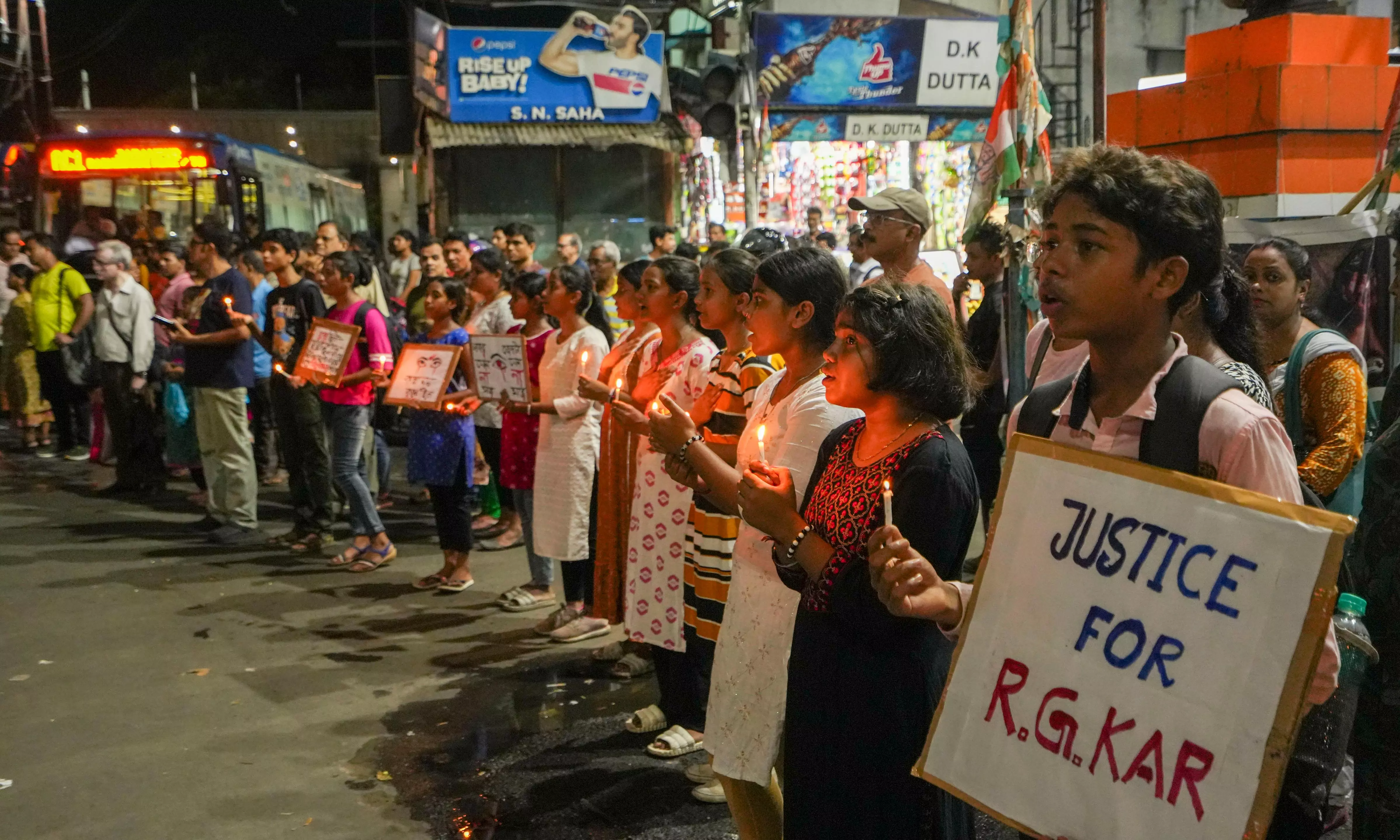
- Home
- India
- World
- Premium
- THE FEDERAL SPECIAL
- Analysis
- States
- Perspective
- Videos
- Sports
- Education
- Entertainment
- Elections
- Features
- Health
- Business
- Series
- In memoriam: Sheikh Mujibur Rahman
- Bishnoi's Men
- NEET TANGLE
- Economy Series
- Earth Day
- Kashmir’s Frozen Turbulence
- India@75
- The legend of Ramjanmabhoomi
- Liberalisation@30
- How to tame a dragon
- Celebrating biodiversity
- Farm Matters
- 50 days of solitude
- Bringing Migrants Home
- Budget 2020
- Jharkhand Votes
- The Federal Investigates
- The Federal Impact
- Vanishing Sand
- Gandhi @ 150
- Andhra Today
- Field report
- Operation Gulmarg
- Pandemic @1 Mn in India
- The Federal Year-End
- The Zero Year
- Science
- Brand studio
- Newsletter
- Elections 2024
- Events
- Home
- IndiaIndia
- World
- Analysis
- StatesStates
- PerspectivePerspective
- VideosVideos
- Sports
- Education
- Entertainment
- ElectionsElections
- Features
- Health
- BusinessBusiness
- Premium
- Loading...
Premium - Events

While punishing heinous crimes is understandable, it’s vital to consider whether such punishment actually reduces violence and promotes justice
The West Bengal Assembly’s passage of the Aparajita Bill, 2024, has reignited a global debate on the efficacy of punitive justice and its role in curbing the pervasive culture of sexual violence.
The Bill has been named in memory of the young doctor who was raped and murdered at Kolkata’s RG Kar Medical College and Hospital on August 9, with the word “Aparajita” symbolising resilience. The tragic event has become a flashpoint, galvanizing public outcry and prompting legislative action.
But while the Bill’s proponents celebrate it as a historic step towards justice, critics caution that its most controversial provision — the death penalty — may be more of a retributive gesture than a genuine solution to India’s entrenched rape culture.
Swift justice or legal overreach?
At the heart of the Aparajita Bill is a set of stringent measures aimed at expediting the judicial process and delivering harsher penalties to perpetrators of rape. The Bill introduces the death penalty for those convicted of rape if the crime results in the victim’s death or leaves her in a vegetative state.
Additionally, it stipulates life imprisonment without parole for rape and gang rape, a clear signal of the state’s intent to impose severe consequences on sexual offenders.
The Bill also mandates a faster investigation process, reducing the timeframe for rape case investigations to a mere 21 days. To support this expedited timeline, the law proposes the establishment of special fast-track courts and the creation of the “Aparajita Task Force” — a specialized police unit dedicated to handling cases of rape and sexual violence against women and children.
This task force, operating at the district level and led by a deputy superintendent of police, is designed to ensure that cases are handled with the urgency and expertise they demand.
Deterrent or dangerous precedent?
The introduction of the death penalty in the Aparajita Bill has sparked a fierce debate, both within India and among international human rights organizations. Supporters argue that such a severe punishment is necessary to deter potential offenders and reflect the gravity of the crime. They point to the public’s growing frustration with the slow pace of justice and the perception that current penalties are insufficient to curb the rising tide of sexual violence.
However, the counter-argument is persuasive: Research, including studies from the United States, shows that the death penalty does not effectively deter crime. The data consistently indicate that the threat of execution does little to reduce crime rates.
Instead, it often serves as a symbolic gesture, satisfying public demands for retribution rather than addressing the underlying causes of criminal behaviour.
Ethical concerns
Moreover, the use of capital punishment raises serious ethical concerns in a democratic society that values human rights. The irreversible nature of the death penalty means that any miscarriage of justice — not an uncommon occurrence in India’s overburdened legal system — cannot be rectified. This risk is particularly acute in a country where investigations are often marred by corruption, incompetence, and political influence.
While the Aparajita Bill’s harsh penalties are designed to send a strong message, they do little to address the deeper sociocultural factors that sustain rape culture in India.
The prevalence of sexual violence is not merely a legal issue; it is deeply embedded in the country’s social fabric, shaped by centuries of patriarchal norms, caste hierarchies, and entrenched gender biases.
Beyond legality
In many parts of India, women and girls are still viewed as inferior to men, their value tied to their purity and obedience. This patriarchal mindset is reinforced by a range of cultural practices, from arranged marriages to dowry systems, which commodify women and reduce their autonomy. Caste hierarchies further exacerbate the issue, with women from lower castes often facing higher rates of violence, including sexual assault, as a means of asserting dominance and control.
The language used in textbooks and social discourse also perpetuates gender biases, normalizing male aggression and portraying women as passive victims. This sexist language is a reflection of a broader societal acceptance of hyper-masculinity, where traits like dominance, aggression, and sexual conquest are valorised, while sensitivity and respect for women are often derided as signs of weakness.
Economic dimension of rape
The economic dimension of rape culture is another critical factor that the Aparajita Bill fails to address. Gender inequality is not just a social or cultural issue; it is also an economic one. Women in India, particularly those from marginalized communities, are disproportionately affected by poverty, lack of education, and limited access to resources. This economic vulnerability makes them more susceptible to exploitation, including sexual violence.
The political economy of rape in India is shaped by the intersection of class and gender.
Women from marginalized communities, such as Dalits and the poor, are more vulnerable to sexual violence due to economic and social inequalities. They face limited access to legal protection, while the justice system often reflects class biases — cases involving powerful perpetrators are frequently dismissed, while those involving poor victims remain stalled in courts.
The limitations of legal solutions
The Aparajita Bill, with its emphasis on punitive justice, is part of a broader trend in Indian politics to respond to social crises with legislative action. However, the effectiveness of such laws is often limited by the gap between rhetoric and reality. While the Bill’s provisions may look impressive on paper, their implementation is likely to face significant challenges, including bureaucratic inefficiency, corruption, and political interference.
Moreover, the focus on punishment as a solution to sexual violence overlooks the need for a more comprehensive approach. Laws alone cannot change the deep-seated attitudes and behaviours that perpetuate rape culture. What is needed is a multi-faceted strategy that includes legal reform, education, economic empowerment, and societal change.
Rethinking justice
From a global standpoint, the Aparajita Bill’s reliance on the death penalty seems increasingly outdated. Many Western democracies have abandoned capital punishment, recognizing its moral and practical flaws. These countries have instead prioritized rehabilitation, prevention, and restorative justice as more effective and humane responses to crime.
Scandinavian countries, with some of the world’s lowest sexual violence rates, focus on prevention through education, social support, and gender equality. They invest in public awareness campaigns, comprehensive sex education, and programmes challenging toxic masculinity. Their criminal justice systems emphasize victim support and rehabilitation opportunities for offenders.
Retribution vs rehabilitation
The Aparajita Bill prompts crucial ethical questions about crime and punishment in democracies. Should justice emphasize retribution, or should it focus on rehabilitation and societal change? While punishing heinous crimes is understandable, it’s vital to consider whether such punishment actually reduces violence and promotes justice.
Evidence suggests punitive measures alone are inadequate. Addressing sexual violence requires a broader commitment to gender equality, economic justice, and cultural change. This involves challenging patriarchal norms, addressing vulnerabilities, and fostering a culture of respect and equality.
A step forward, yet incomplete
The Aparajita Bill, 2024, marks a significant advance in West Bengal’s fight against sexual violence. Its swift-justice provisions and severe penalties reflect a serious commitment. However, the Bill’s reliance on the death penalty and punitive focus raises ethical and practical concerns.
For a global audience, the Aparajita Bill underscores that legal reforms, while vital, are not enough to combat the deep-seated problem of sexual violence. True change demands a holistic approach — legal reform, societal transformation, and a strong commitment to human rights.
As India continues to confront these challenges, the international community will watch, learn, and critique. The Aparajita Bill is a step forward, but it is not the final answer to eradicating rape culture in India or anywhere else.
(The Federal seeks to present views and opinions from all sides of the spectrum. The information, ideas or opinions in the articles are of the author and do not necessarily reflect the views of The Federal.)


